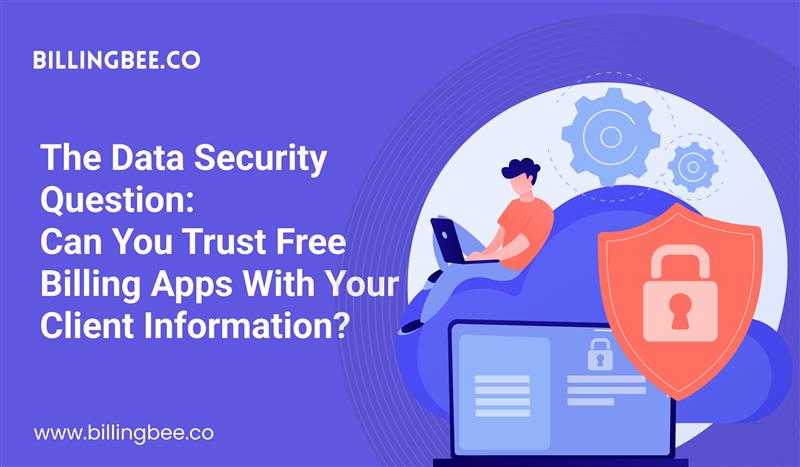The Data Security Question: Can You Trust Free Billing Apps With Your Client Information?




When you’re running a business, trust is currency. Your clients trust you with their money, their sensitive details, and their loyalty. But here’s the question few business owners pause to ask: Are you extending that same level of trust to the billing tools you use every day?
The rise of free billing apps has been nothing short of remarkable. They promise a cost-effective way to manage invoices, track payments, and reduce administrative headaches. But as with most things that come “free,” there’s a catch—and in this case, the catch may involve your clients’ personal and financial information.
So, before you hand over your billing operations to a no-cost tool, let’s take a closer look at what you might really be agreeing to.
Why Free Billing Apps Attract Small Businesses
Startups, freelancers, and small businesses often face tight budgets. A free billing app looks like the perfect solution—it takes care of invoicing, helps track who owes what, and sometimes even integrates with payment gateways. On the surface, it seems like a smart, frugal choice.
But here’s the problem: billing tools don’t just handle numbers. They store sensitive details such as client names, addresses, email IDs, transaction histories, and sometimes even bank details. Once that information is in a system, it’s vulnerable—depending on how the app is built and how securely it’s maintained.
The Hidden Cost of “Free”
There’s an old saying in the digital world: if you’re not paying for the product, you are the product. Free billing apps need to sustain themselves somehow, and the most common way is through data. Some may monetize by:
- Selling aggregated user behavior data to third parties
- Displaying ads within the platform, which often comes with tracking
- Offering limited free services while nudging you into costly add-ons later
The real danger? Many of these apps don’t have enterprise-grade security protocols in place. That means your client’s data could be left exposed to breaches or misuse.
Real-World Risks of Weak Billing Tools
- Data Breaches: Hackers target financial tools because the payoff is high. A poorly secured billing app could be a goldmine of unprotected client data.
- Compliance Issues: Depending on where your business operates, you might be legally obligated to meet data protection standards like GDPR or CCPA. Free apps may not meet these requirements.
- Reputation Damage: Imagine calling a client to inform them their information was compromised—not only would you lose credibility, but it could cost you contracts.
- Operational Interruptions: Free apps can shut down unexpectedly or change their terms overnight. Without reliable backups, you could lose months of financial records.
What Clients Expect From You
Clients aren’t just paying for your product or service—they’re paying for professionalism. And professionalism today means digital responsibility. If you use a free tool and it leads to compromised data, the client won’t blame the app. They’ll blame you.
That’s why businesses across industries are moving away from bare-minimum tools and seeking professional-grade billing systems. Because trust, once broken, is nearly impossible to rebuild.
How to Protect Your Business and Your Clients
If you’ve been tempted by a free billing app, here are a few things to evaluate before relying on it:
- Security Transparency: Does the app clearly state what measures it uses to protect data? (Encryption, secure servers, multi-factor authentication, etc.)
- Data Ownership: Do you retain full ownership of the data you upload? Or does the company have rights to use it?
- Scalability: Will the app still serve you when your business grows—or will you face disruptions during migration later?
- Compliance: Does it meet global or regional security standards?
- Support: When something goes wrong, do you get real-time help, or are you left on your own?
Why Professional Tools Are Worth the Investment
Paid billing platforms don’t just give you convenience—they give you peace of mind. A trustworthy tool is designed to secure sensitive client information, maintain compliance with international standards, and provide reliability when your business depends on it most.
Think of it this way: cutting corners on billing may save you a few dollars today, but a single data leak could cost you clients, revenue, and years of reputation tomorrow.
The Bottom Line
The choice isn’t really between free vs. paid billing apps. The choice is between short-term savings and long-term trust. Every invoice you send is a representation of your business. Every client detail you store is a piece of responsibility.
So ask yourself again: Can you really trust a free billing app with your client information?
For most serious businesses, the answer is clear.